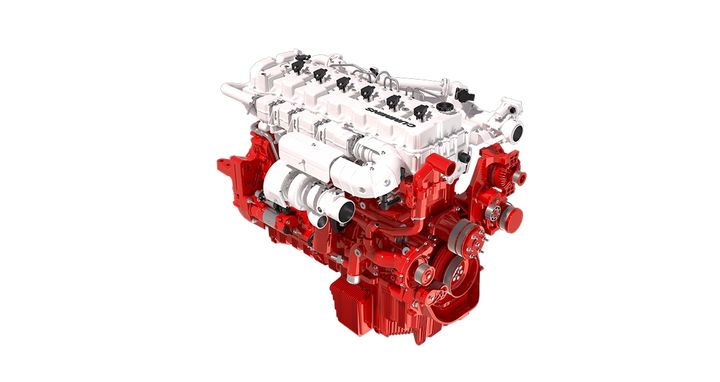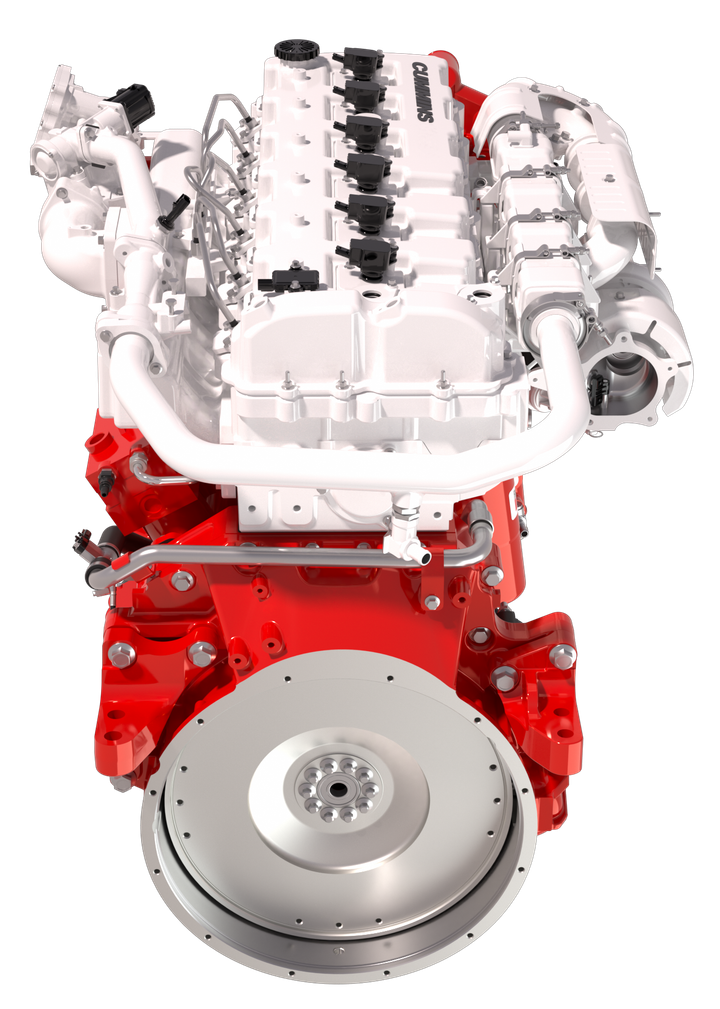


The automotive industry is at the forefront of a transformative shift towards sustainable transportation solutions. As concerns over carbon emissions and environmental impact continue to mount, innovative technologies like fuel-agnostic engines are emerging as game-changers. This article delves into the intricacies of fuel-agnostic engines, exploring their unique architecture, environmental and economic benefits, real-world applications, challenges, and their pivotal role in bridging the gap towards a greener future.

Fuel-agnostic engines, also known as fuel-flexible or multi-fuel engines, are revolutionary internal combustion engine platforms designed to accommodate various fuel types with minimal modifications. These engines feature a unique architecture that allows for seamless adaptation to different fuels, as shown in the table below:
| Fuel Type | Description |
|---|---|
| Diesel | Traditional petroleum-based fuel |
| Natural Gas (CNG/LNG) | Cleaner-burning alternative to diesel |
| Hydrogen | Zero-carbon fuel |
| Propane | Alternative gaseous fuel |
| Biofuels (biogas, ethanol) | Renewable fuels derived from biomass |
| HVO (Hydrotreated Vegetable Oil) | Renewable diesel fuel from vegetable oils |
| Biodiesel | Biofuel derived from vegetable or animal fats |
The key to fuel-agnostic engines lies in their modular construction. While the lower end (bottom) of the engine remains largely consistent across fuel variants, the upper end (cylinder heads, fuel systems, and related components) is optimized for the specific fuel type being utilized. This innovative approach enables manufacturers to leverage a common base engine platform and adapt it to run on multiple fuels, offering unparalleled flexibility and versatility.
Fuel-agnostic engines play a crucial role in the pursuit of sustainable transportation by enabling the use of low-carbon and zero-carbon fuels. By facilitating the transition to alternative fuels like hydrogen, natural gas, and biofuels, these engines offer a viable solution for reducing carbon emissions and mitigating environmental impact across various sectors, including commercial transportation, heavy-duty vehicles, and power generation.
Moreover, fuel-agnostic engines provide a cost-effective and practical approach for original equipment manufacturers (OEMs) and fleet operators to adapt to changing fuel landscapes. With minimal vehicle redesign and manufacturing process changes required, these engines allow companies to preserve their existing investments while embracing cleaner and more sustainable fuel options.
Fuel-agnostic engines are built upon a unique and innovative architecture that sets them apart from traditional internal combustion engines. This section explores the core design principles and fuel flexibility that underpin this groundbreaking technology.
At the heart of fuel-agnostic engines lies a common lower end (bottom) that remains largely unchanged across different fuel variants. This shared foundation includes components such as the crankshaft, pistons, connecting rods, and other essential engine components that are not directly affected by the fuel type.
While the lower end remains consistent, the upper end (top) of the engine is optimized for the specific fuel type being used. This includes components like cylinder heads, fuel systems, and related components that are tailored to the unique characteristics and combustion requirements of each fuel.
By separating the engine into these two distinct sections, manufacturers can leverage a common base platform and adapt the upper end to accommodate various fuels, minimizing the need for extensive redesigns and enabling seamless fuel transitions.
One of the defining features of fuel-agnostic engines is their ability to accommodate a wide range of fuel types. These engines can run on traditional fuels like diesel and gasoline, as well as alternative fuels such as natural gas, hydrogen, propane, and biofuels like HVO (Hydrotreated Vegetable Oil) and biodiesel.
This fuel flexibility allows for greater adaptability and resilience in the face of changing fuel landscapes, enabling transportation and power generation sectors to transition seamlessly to cleaner and more sustainable fuel options as they become available.
A key advantage of fuel-agnostic engines is the minimal modifications required to transition between different fuel types. By leveraging the modular design and optimizing the upper end components, manufacturers can adapt their existing engine platforms to run on new fuels with relatively minor changes.
This approach not only reduces the overall cost and complexity of fuel transitions but also allows for faster adoption of alternative fuels, as manufacturers can quickly respond to market demands and regulatory changes without the need for extensive redesigns or retooling.
Fuel-agnostic engines offer a compelling combination of environmental and economic benefits, making them an attractive solution for various stakeholders in the transportation and power generation sectors.
One of the primary advantages of fuel-agnostic engines is their ability to enable the use of low-carbon and zero-carbon fuels. By accommodating alternative fuels like hydrogen, natural gas, and biofuels, these engines significantly reduce the carbon footprint associated with traditional fossil fuels.
The adoption of fuel-agnostic engines aligns with global efforts to mitigate climate change and achieve decarbonization goals, contributing to a more sustainable and environmentally-friendly transportation and energy landscape.
As governments, industries, and organizations worldwide strive to reduce their carbon emissions and meet ambitious decarbonization targets, fuel-agnostic engines play a vital role. By facilitating the transition to cleaner fuel sources, these engines support the overall efforts to combat climate change and promote a more sustainable future.
Fuel-agnostic engines complement other technologies like electric vehicles and fuel cells, offering a comprehensive approach to decarbonizing various sectors and achieving a more diverse and resilient energy mix.
For original equipment manufacturers (OEMs) and fleet operators, fuel-agnostic engines provide a cost-effective solution by allowing them to leverage their existing investments in manufacturing processes and infrastructure. By adapting their current engine platforms to accommodate different fuel types, companies can minimize the need for extensive redesigns and retooling, reducing overall costs and maximizing resource utilization.
The modular design of fuel-agnostic engines minimizes the need for significant changes to manufacturing processes. By maintaining a common base platform and optimizing the upper end components, OEMs can streamline their production lines and avoid costly overhauls, further contributing to cost-effectiveness and operational efficiency.
Fuel-agnostic engines also offer economic benefits in terms of maintenance and service. Since the core engine architecture remains largely consistent across fuel variants, technicians can leverage their existing knowledge and expertise, reducing the need for extensive retraining and ensuring efficient maintenance and repair operations.
This familiarity with fuel-agnostic engines translates into cost savings for fleet operators and end-users, as well as improved uptime and operational reliability.
Fuel-agnostic engines have found applications across various sectors, demonstrating their versatility and potential for widespread adoption. This section explores some of the key applications and real-world examples of this innovative technology.
Commercial Vehicles and Fleets
Heavy-Duty Vehicles
The commercial transportation sector, including trucks, buses, and delivery vehicles, is a prime candidate for the adoption of fuel-agnostic engines. Fleet operators can leverage the fuel flexibility offered by these engines to transition their vehicles to cleaner fuel sources while minimizing disruptions to their operations and maximizing cost-effectiveness.
Companies like Cummins, a leading engine manufacturer, have introduced fuel-agnostic engine platforms specifically designed for the commercial vehicle market, enabling seamless integration of alternative fuels into existing fleets.
Fuel-agnostic engines also hold significant potential in the heavy-duty vehicle segment, including construction equipment, mining vehicles, and long-haul trucks. These applications often require powerful and reliable engines capable of handling demanding workloads while meeting stringent emissions regulations.
By adopting fuel-agnostic engines, heavy-duty vehicle manufacturers can offer their customers the flexibility to choose from a range of fuel options, including low-carbon and zero-carbon alternatives, without compromising on performance or operational capabilities.
Stationary Power Plants
Backup and Distributed Generation
In the power generation sector, fuel-agnostic engines can play a crucial role in enabling the transition to cleaner and more sustainable energy sources. Stationary power plants can leverage these engines to accommodate a diverse range of fuels, including natural gas, hydrogen, and biofuels, reducing their reliance on traditional fossil fuels and contributing to decarbonization efforts.
Fuel-agnostic engines also find applications in backup and distributed generation systems, where reliability and fuel flexibility are paramount. These engines can be configured to run on various fuel types, ensuring uninterrupted power supply and resilience in the face of fuel shortages or disruptions.
Additionally, distributed generation systems powered by fuel-agnostic engines can support the integration of renewable energy sources, providing a complementary solution to address intermittency and grid stability challenges.
Leading engine manufacturers have recognized the potential of fuel-agnostic technology and are actively developing and commercializing these innovative platforms.
Cummins
Werner Enterprises
Cummins, a global leader in the design and manufacturing of engines, has been at the forefront of fuel-agnostic engine development. The company has introduced several fuel-agnostic engine lines, including the B6.7 platform widely used in the school bus industry, as well as a 15-liter platform capable of running on hydrogen, natural gas, and sustainable fuels like HVO (Hydrotreated Vegetable Oil) and biodiesel.
Cummins has also formed strategic collaborations with companies like Werner Enterprises, a prominent transportation and logistics provider, to integrate hydrogen internal combustion engines into their vehicle fleets, demonstrating the real-world applications and potential of this technology.
Werner Enterprises, a leading transportation and logistics company, has partnered with Cummins to explore the integration of hydrogen internal combustion engines into their vehicle fleets. This collaboration showcases the industry's commitment to embracing sustainable transportation solutions and highlights the practical applications of fuel-agnostic engine technology in the commercial transportation sector.
While fuel-agnostic engines offer numerous advantages, there are certain challenges and considerations that must be addressed to ensure their successful adoption and implementation.
The widespread adoption of fuel-agnostic engines hinges on the availability of adequate infrastructure for alternative fuel distribution and refueling. As transportation and power generation sectors transition to cleaner fuel sources, the development of refueling stations and distribution networks for fuels like hydrogen, natural gas, and biofuels becomes crucial.
Collaboration between industry stakeholders, governments, and infrastructure developers is essential to ensure the timely and efficient deployment of refueling facilities, enabling seamless operations for vehicles and power generation systems equipped with fuel-agnostic engines.
In addition to refueling stations, robust distribution networks for alternative fuels must be established to ensure reliable and consistent fuel supply. This may involve investments in transportation infrastructure, storage facilities, and logistical systems to facilitate the efficient movement and delivery of these fuels to end-users.
Addressing these infrastructure challenges is critical to unlocking the full potential of fuel-agnostic engines and accelerating the transition towards sustainable transportation and energy solutions.
While fuel-agnostic engines offer remarkable flexibility, adapting them to different fuel types may introduce compatibility issues and potential performance trade-offs. Each fuel type has unique combustion characteristics, energy densities, and operational requirements, necessitating careful optimization and testing to ensure optimal performance and efficiency.
Engine manufacturers and research institutions must collaborate to conduct extensive testing and validation processes, ensuring that fuel-agnostic engines can deliver consistent and reliable performance across various fuel variants while meeting stringent emissions and efficiency standards.
Depending on the fuel type and engine configuration, there may be variations in performance metrics such as power output, torque delivery, and fuel efficiency. These variations must be carefully evaluated and addressed through advanced engine management systems and calibration strategies.
Ongoing research and development efforts are crucial to minimizing performance trade-offs and ensuring that fuel-agnostic engines can meet the diverse operational requirements of various applications, from commercial vehicles to power generation systems.

Fuel-agnostic engines represent a pivotal step in bridging the gap between traditional internal combustion engines and emerging sustainable transportation and energy solutions.
While electric vehicles and fuel cell technologies are gaining traction as zero-emission solutions, fuel-agnostic engines offer a complementary approach to decarbonization. They provide a viable alternative for applications where electrification may not be feasible or practical, such as long-haul transportation, heavy-duty vehicles, and certain power generation scenarios.
By enabling the use of low-carbon and zero-carbon fuels, fuel-agnostic engines contribute to a diverse and resilient energy mix, supporting the overall transition towards a more sustainable future.
Fuel-agnostic engines serve as a crucial bridge, enabling a smoother transition from traditional internal combustion engines to emerging technologies like electric vehicles and fuel cells. As infrastructure and technological advancements progress, fuel-agnostic engines can facilitate the gradual adoption of alternative fuels, mitigating potential disruptions and allowing for a more seamless integration of new energy solutions.
This transitional approach not only reduces the economic and operational burdens associated with rapid technological shifts but also provides valuable time for the development and maturation of emerging technologies, ensuring their long-term viability and widespread adoption.
As the global demand for cleaner and more sustainable transportation and power generation solutions continues to grow, fuel-agnostic engines are well-positioned to meet this challenge. By offering a flexible and adaptable platform, these engines enable industries and consumers to embrace alternative fuel options while minimizing the need for extensive infrastructure overhauls or vehicle replacements.
Fuel-agnostic engines provide a practical and cost-effective solution for decarbonizing various sectors, aligning with the global push towards a more sustainable future and contributing to the achievement of ambitious climate goals.
Fuel-agnostic engines represent a revolutionary advancement in the field of internal combustion engines, offering a flexible and environmentally-friendly solution for sustainable transportation and power generation. With their unique architecture and ability to accommodate various fuel types, these engines enable a seamless transition to low-carbon and zero-carbon alternatives, reducing emissions and mitigating environmental impact.
By providing cost-effectiveness for manufacturers and fleet operators, leveraging existing investments, and facilitating easier maintenance, fuel-agnostic engines offer compelling economic benefits alongside their environmental advantages. Real-world applications across the transportation and power generation sectors demonstrate the practical viability and potential of this innovative technology.
While challenges such as infrastructure development and compatibility issues must be addressed, fuel-agnostic engines represent an important step in bridging the gap between traditional internal combustion engines and emerging sustainable technologies like electric vehicles and fuel cells. As the world moves towards a more sustainable future, fuel-agnostic engines are poised to play a crucial role in meeting the growing demand for cleaner transportation and power generation solutions, complementing other decarbonization efforts and contributing to the achievement of ambitious climate goals.
The upper end components, such as cylinder heads, fuel systems, and related components, are optimized for the specific fuel type being used. The lower end components, like the crankshaft and pistons, remain largely consistent across fuel variants.
Fuel-agnostic engines enable the use of low-carbon and zero-carbon fuels like hydrogen, natural gas, and biofuels, significantly reducing carbon emissions compared to traditional fossil fuels. This aligns with global efforts to mitigate climate change and achieve decarbonization goals.
Depending on the fuel type and engine configuration, there may be variations in performance metrics such as power output, torque delivery, and fuel efficiency. Careful optimization and testing are required to minimize these trade-offs.
Fuel-agnostic engines offer a complementary approach to decarbonization for applications where electrification may not be feasible or practical, such as long-haul transportation and heavy-duty vehicles. They contribute to a diverse and resilient energy mix.
Fuel-agnostic engines serve as a bridge, facilitating a gradual adoption of alternative fuels and mitigating potential disruptions associated with rapid technological shifts. This allows time for the development and maturation of emerging technologies.
By offering a flexible and adaptable platform, fuel-agnostic engines enable industries and consumers to embrace alternative fuel options while minimizing the need for extensive infrastructure overhauls or vehicle replacements, meeting the growing demand for cleaner solutions.
The widespread adoption of fuel-agnostic engines hinges on the availability of adequate infrastructure for alternative fuel distribution and refueling, including refueling stations, storage facilities, and robust distribution networks.
Extensive testing and validation processes are required to ensure that fuel-agnostic engines can deliver consistent and reliable performance across various fuel variants while meeting emissions and efficiency standards.
Fuel-agnostic engines allow OEMs and fleet operators to leverage their existing investments in manufacturing processes and infrastructure, minimizing the need for extensive redesigns, retooling, and technician retraining, resulting in cost savings.
Companies like Cummins are at the forefront of fuel-agnostic engine development, introducing innovative platforms and forming strategic collaborations with transportation and logistics providers to integrate these engines into their vehicle fleets.

Sarah isn't your average gearhead. With a double major in Mechanical Engineering and Automotive Technology, she dived straight into the world of car repair. After 15 years of turning wrenches at dealerships and independent shops, Sarah joined MICDOT to share her expertise and passion for making cars run like new. Her in-depth knowledge and knack for explaining complex issues in simple terms make her a valuable asset to our team.







